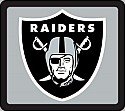

However, I have a few items to discuss and some house cleaning to do for this blog. So here goes.
It has been nearly eighteen years since I sat and watched the premiere of The Civil War by Ken Burns. It was during this film that I was introduced (as were so many other viewers) to author Shelby Foote. I have talked about Foote in a previous blog. After reading so many books on Lee’s Generalship and the Lost Cause I decided to take a break from that and commit myself to reading Foote’s massive three-volume narrative entitled The Civil War: A Narrative.
This reading has re-exposed me and introduced me to some interesting tidbits and ideas for future blogs. Of course my Forgotten Battles Series and Forgotten Generals series will see new additions but I wanted to add another. Great Military Blunders of the Civil War. In the next few weeks I will create a blog that will be the first addition to this new series. I cannot wait.
Back to Foote’s book. So far I am on page 191 of Volume One. The book is really good but Foote ignored the use of citation in his book although the things that I recognize are accurate and precise. Shelby was a masterful storyteller who weaves his storyline with engaging phrases and individual words. This along with the use of the Official Records, Memoirs and other primary sources make these books great. However, I don’t want to get ahead of myself because this isn’t a book review. Here is an interesting connection between two Union heroes that I didn’t know about. (I may have read this during my 23 years of Civil War studies but it might have been lost in my memory)
William T. Sherman and George H. Thomas were good friends. When Thomas, a Virginian by birth sought a position in the Union army Abraham Lincoln was hesitant. Former Federal officers RE Lee and Joseph E. Johnston had defected to the Confederacy and Lincoln questioned if this Virginian would do the same. Lincoln didn’t trust Thomas and Sherman spoke up for his old friend.
Lincoln question Sherman about the Virginian’s loyalties and the Ohioan assured Lincoln that Thomas was loyal. Lincoln signed a commission making George Thomas a brigadier general. After Sherman left Lincolns presence he encountered Thomas on the streets of Washington.
“Tom, you’re a brigadier general” he enthusisctally announced but Thomas betrayed no emotion to Sherman’s comment. Seeing his friends’ response Sherman feared that his old army buddy was going to the War Department to tender his resignation. “Where are you going?” Sherman asked.
“I’m going south,” Thomas replied firmly.
“My God, Tom,” Sherman groaned. “You’ve put me in a awful position! I’ve just made myself responsible for your loyalty!”
“Give yourself no trouble, Billy,” Thomas assured his friend. “I’m going south at the head of my troops.”
Lincoln had found one of his best and most underrated Union general who would serve faithfully at Mill Springs, Nashville, Franklin, Chickamauga and a dozen more engagements. So began the famed career of George H. Thomas, the “Rock of Chickamauga”.




















